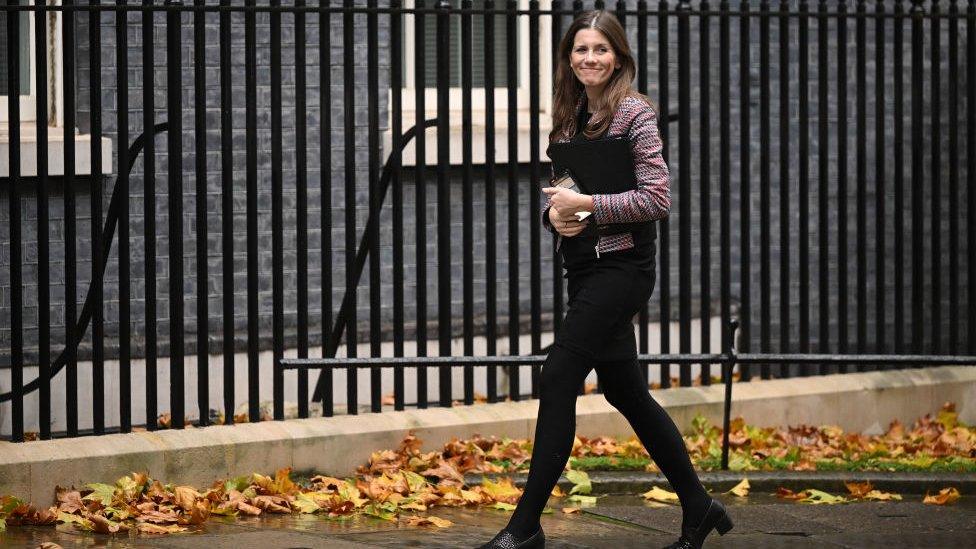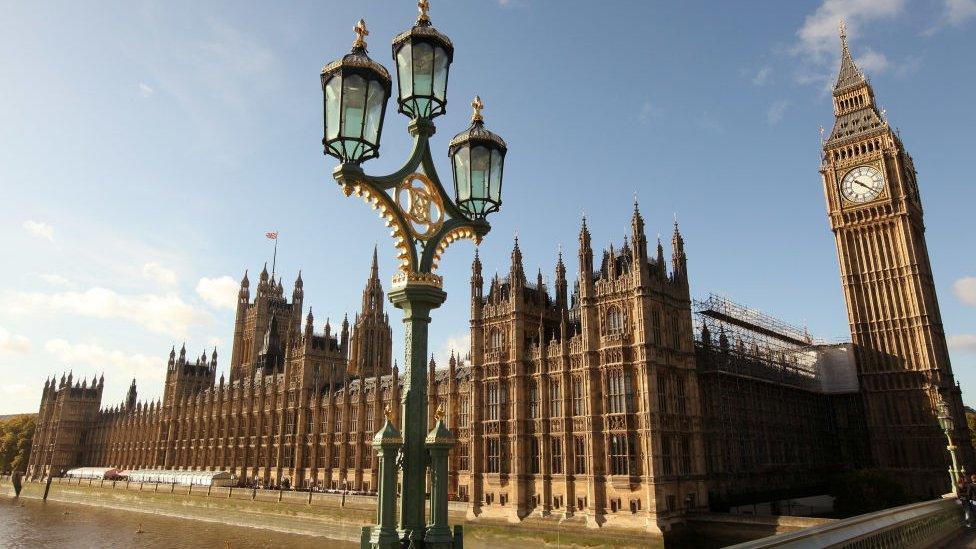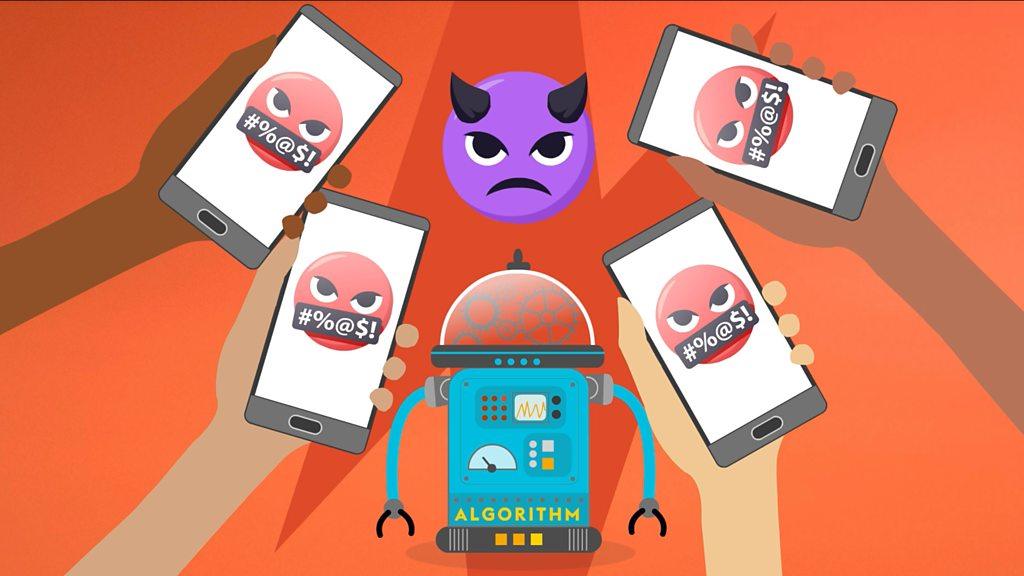Online Safety Bill: Plans to force tech companies to remove harmful content have been dropped
- Published
- comments

Plans to force big tech companies to remove harmful content from their platforms have been dropped from new laws aimed at governing the internet.
Known as the Online Safety Bill, its basic purpose is to police the internet - with the rules set out within this bill due to become law by next summer.
The bill (which is an idea that someone thinks will make a good law) previously included a section which required "the largest, highest-risk platforms" to tackle some legal but harmful material.
Meaning that big companies like Facebook and YouTube would be legally responsible for preventing people from being exposed to harmful content that you might see online - such as posts promoting abuse or eating disorders.
Seen something upsetting online? Here's what to do about it.
What's changed and why?
These companies would risk huge, multi-million pound fines for failure to remove this harmful or upsetting material.
But now, rather than removing the content all together - as the bill previously set out when it was published in 2021- tech companies will be told to introduce a system allowing users more control to filter out harmful content they do not want to see instead.
Critics say this is not protecting users, particularly children, from being able to access online content which is harmful and the responsibility should lie with the platforms themselves to prevent this content even being there.
Others have argued that a person's freedom of speech - the right to share opinions and ideas without being stopped or punished - is threatened if platforms remove content that users have posted.
So supporters of this view, which includes many Conservative MPs, will be pleased with the removal of this section from the Safety Bill.
The idea of new rules to tackle 'online harms' was originally set out by the Department for Digital, Culture, Media and Sport in May 2018.
What has the government said?

Culture Secretary Michelle Donelan has faced some criticism for these rules being axed
The government has been accused by Labour and the charity Samaritans of a 'hugely backward step' by watering-down or relaxing these new laws and not forcing big, powerful technology companies to be responsible for the content they allow to be posted on their sites.
But Culture Secretary Michelle Donelan denied weakening laws protecting social media users and told the BBC that tech companies had the ability to protect users.
"These are massive, massive corporations that have the money, the knowhow and the tech to be able to adhere to this," she said.
She warned that those who did not comply would still face significant fines and "huge reputational damage".
The NSPCC (National Society for the Prevention of Cruelty to Children) has previously said that fines for big tech companies do not go far enough and wanted to see senior managers of social media companies face action in court.
"Increasing the controls that people have is no replacement for holding sites to account through the law.
These changes will be seen by some as the opposite of that, with much of the responsibility still resting on the user to navigate the online world safely.
But Ms Donelan told BBC News the revised bill offered "a triple shield of protection - so it's certainly not weaker in any sense".
How long will it take for the law to change?

In Parliament, MPs debate and vote on bills which if approved will become law in the UK
The bill is currently at the report stage of a process of passing laws through parliament.
Report stage gives MPs an opportunity to consider further changes to a bill.
Report stage is usually followed immediately by debate on the bill's third reading. The House must decide whether it wants the bill, with its amendments, to become law.
If a majority pass the bill, it will move to the House of Lords for further readings and approval.
The bill does not become law until the final stages are complete and it is given Royal Assent - where the monarch gives official approval - not due until next summer.
If the bill does not pass by then, there remains a risk the entire proposal may never become law.
If the House of Lords votes against a bill that the Commons wants, it can be delayed for a year, but the Lords cannot permanently block a bill.
- Published29 December 2019

- Published12 May 2021

- Published7 May 2019

